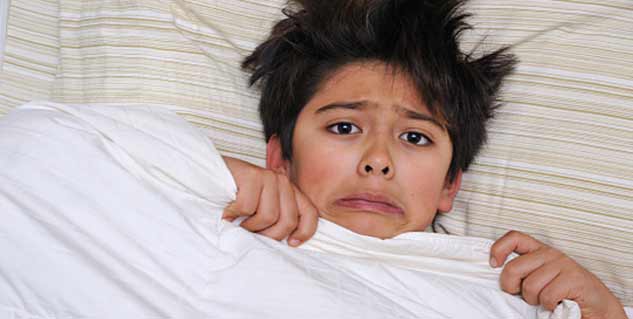Night terrors occur usually about 2 or 3 hours after a child falls asleep, when sleep transitions from the deepest stage of non-REM sleep to lighter REM sleep, a stage where dreams occur. Usually this transition is a smooth one. But rarely, a child becomes agitated and frightened — and that fear reaction is a night terror.
During a night terror, a child might suddenly sit upright in bed and shout out or scream in distress. The child’s breathing and heartbeat might be faster, he or she might sweat, thrash around, and act upset and scared. After a few minutes, or sometimes longer, a child simply calms down and returns to sleep.
Do try to keep calm yourself. It is likely that your child is not remembering these incidents and is not being traumatized by them. That said, of course you want to offer her whatever comfort you can, and keep her safe. While she will probably seem inconsolable, adults who suffer from night terrors say that they have been comforted by the calm, reassuring voices of those they love. And of course, if she’ll let you hug her, then do so.
Do try to minimize stress in his life for now. No toilet training or other big developmental challenges if you can help it until he gets out of this phase. Be sure he is not exposed to parental loud voices or other emotional stressors. Use “positive discipline” as opposed to spankings, yelling, timeouts or other stressful discipline. Minimize schedule changes and nights away from home.
Eliminate TV. The American Academy of Pediatrics recommends that kids younger than 24 months should not watch TV because it negatively impacts brain development, and TV has also been shown to be stressful for little ones, who think the conflicts dramatized on the screen are real.
Don’t allow your little one to get over-tired, which may make her more susceptible to night terrors. Be sure she has a regular bedtime routine and is getting sufficient sleep. One way to insure that is to move her bedtime a bit earlier each night. Often little ones need to be asleep by 7pm; when they stay up later they have to summon adrenaline and other arousal hormones to keep it together. Moving to an earlier bedtime not only helps them fall asleep more easily at night, but also lessens the possibility of over-arousal.


